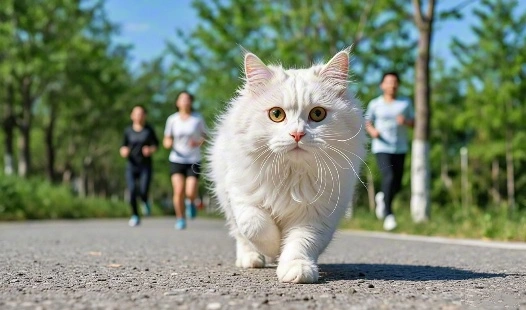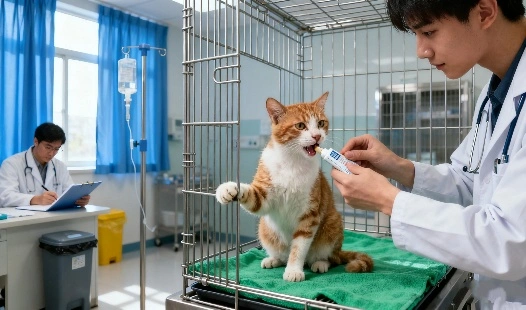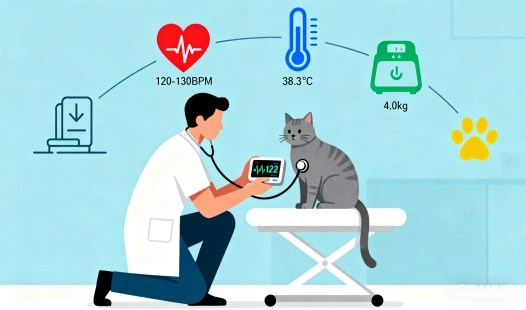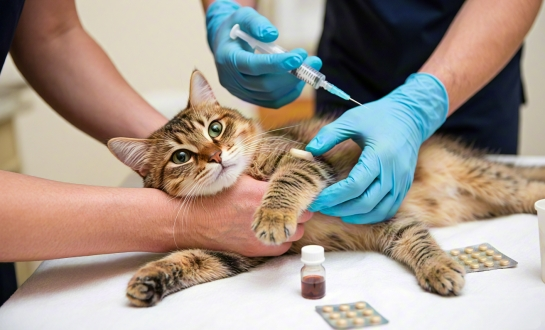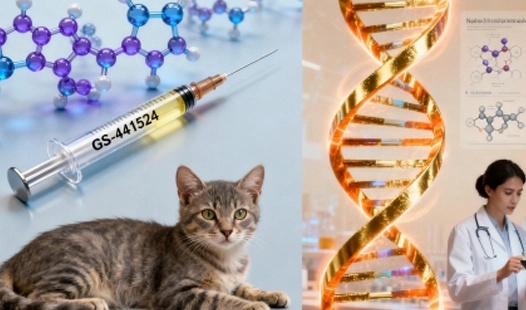Frequently Asked Questions about FIP Treatment
Treatment Duration: How Long Is Enough?
Both feline owners and doctors have long struggled with Feline Infectious Peritonitis (FIP). New therapeutic options, however, have given those dealing with this diagnosis reason to be hopeful. Duration, relapse risks, and post-treatment care are the primary areas of emphasis in this article, which seeks to answer some of the most often asked issues about FIP treatment.
|
|
|
Treatment Duration: How Long Is Enough?
One of the most common questions regarding FIP treatment is how long it should last. The answer isn't always straightforward, as it can vary depending on the individual cat and the specific form of FIP they're battling.
Standard Treatment Protocol
Typically, the standard treatment protocol for FIP using GS-441524 Tablet or its injectable form lasts for 12 weeks. This duration has been established based on clinical trials and real-world treatment experiences. However, it's crucial to understand that this is not a one-size-fits-all approach.
Factors Influencing Treatment Duration
Several factors can influence the length of treatment required:
- Form of FIP (wet, dry, or neurological)
- Severity of symptoms at the start of treatment
- Age of the cat
- Overall health status
- Response to treatment
Extended Treatment Periods
In some cases, particularly for cats with neurological FIP or those who show a slower response to treatment, the duration may need to be extended beyond the standard 12 weeks. Some cats might require up to 16 weeks or even longer to achieve remission.
Monitoring Progress
Regular monitoring through blood tests, physical examinations, and observation of clinical signs is crucial in determining whether the treatment duration is sufficient. Veterinarians often look for specific markers such as:
- Normalization of blood values (e.g., hematocrit, albumin, globulin)
- Resolution of clinical symptoms
- Weight gain
- Improved energy levels
|
|
|
|
Relapse Risks: Signs to Watch
While the success rate of FIP treatment with GS-441524 Tablet and similar antivirals is high, the risk of relapse remains a concern for many cat owners. Understanding the signs of potential relapse is crucial for early intervention.
Common Relapse Indicators
Owners should be vigilant for the following signs that could indicate a potential relapse:
- Recurrence of original symptoms
- Unexplained weight loss
- Decrease in appetite or energy levels
- Changes in behavior or neurological signs
- Fever
Timeframe for Relapse Risk
The risk of relapse is highest in the first few months following the completion of treatment. However, some cats have been known to relapse even a year or more after treatment. This underscores the importance of ongoing monitoring and awareness.
Factors Contributing to Relapse
Several factors may contribute to the risk of relapse:
- Insufficient treatment duration
- Inadequate dosage during initial treatment
- Viral mutation or resistance
- Compromised immune system
- Stress or concurrent illnesses
Preventive Measures
While there's no guaranteed way to prevent relapse, certain measures can help minimize the risk:
- Completing the full recommended treatment course
- Regular follow-up appointments with the veterinarian
- Maintaining a stress-free environment for the cat
- Ensuring proper nutrition and overall health
|
|
|
|
Post-Treatment Care: Essential Steps
After completing FIP treatment, proper post-treatment care is crucial to ensure the best possible outcome for your cat. This phase is about monitoring, supporting recovery, and maintaining overall health.
Follow-up Veterinary Visits
Regular check-ups with your veterinarian are essential in the post-treatment phase. These visits typically involve:
- Blood tests to monitor key health indicators
- Physical examinations
- Discussion of any concerns or observations
Nutritional Support
Proper nutrition plays a vital role in recovery and maintaining health post-treatment. Consider the following:
- High-quality, easily digestible cat food
- Supplements as recommended by your veterinarian
- Ensuring adequate hydration
Environmental Considerations
Creating a supportive environment can aid in your cat's recovery:
- Providing a quiet, stress-free space
- Ensuring easy access to food, water, and litter boxes
- Gradually reintroducing normal activities and socialization
Ongoing Monitoring
Vigilant observation of your cat's health and behavior is crucial:
- Regular weight checks
- Monitoring appetite and energy levels
- Watching for any signs of relapse
|
|
|
|
Conclusion
FIP treatment has come a long way, offering hope where there was once little. The journey through FIP treatment, from determining the appropriate duration to managing the risk of relapse and providing essential post-treatment care, requires dedication, vigilance, and a strong partnership with your veterinarian. While challenges may arise, understanding these key aspects of FIP treatment can significantly improve the chances of a successful outcome for your feline companion.
Remember, each cat's journey with FIP is unique. What works for one may not work for another, underscoring the importance of personalized care and close monitoring throughout the treatment process and beyond. With proper care, support, and the advanced treatment options now available, many cats can overcome FIP and go on to live healthy, happy lives.
FAQ
1. Q: Can FIP treatment be administered at home?
A: Yes, in many cases, FIP treatment can be administered at home under the guidance of a veterinarian. This typically involves daily injections or oral medications. However, it's crucial to follow your vet's instructions carefully and maintain regular check-ups.
2. Q: Are there any side effects associated with FIP treatment?
A: Some cats may experience side effects during FIP treatment, including injection site reactions, gastrointestinal upset, or changes in behavior. However, these are generally mild and manageable. Always report any concerning symptoms to your veterinarian promptly.
3. Q: How soon can I expect to see improvements after starting FIP treatment?
A: Many cats show noticeable improvements within the first few weeks of treatment, often with increased appetite and energy levels. However, the rate of improvement can vary. Some cats may take longer to show significant progress, especially those with more severe cases.
Take the Next Step in FIP Treatment with BLOOM TECH
Here at BLOOM TECH, we have a deep understanding of the difficulties associated with FIP treatment and, as a trusted GS-441524 manufacturer, are dedicated to providing top-notch GS-441524 Tablet solutions. Strict quality control methods are used throughout product manufacturing to guarantee the effectiveness and uniformity of our goods. Our dependable assistance for your FIP treatment requirements is backed by over a decade of knowledge in organic synthesis and pharmaceutical intermediates. Don't let FIP hold your feline companion back. Contact us at Sales@bloomtechz.com to learn how our GS-441524 products can make a difference in your cat's treatment journey.
References
1. Pedersen, N.C., et al. (2019). Efficacy and safety of the nucleoside analog GS-441524 for treatment of cats with naturally occurring feline infectious peritonitis. Journal of Feline Medicine and Surgery, 21(4), 271-281.
2. Addie, D.D., et al. (2020). Feline infectious peritonitis. ABCD guidelines on prevention and management. Journal of Feline Medicine and Surgery, 22(11), 1028-1048.
3. Krentz, D., et al. (2021). Remission of feline infectious peritonitis with antiviral treatment. Veterinary Record, 188(7), e44.
4. Dickinson, P.J., et al. (2020). Antiviral treatment of feline infectious peritonitis using GS-441524. Animals, 10(8), 1444.

Sylvia
3 years of experience in chemical articles; Bachelor's degree; Organic Chemistry major; R&D-4 Dept; Technology support; R&D engineer
Anticipating your Business & Technology support inquiry
Please send us the products that interest you, and we will provide you with one-on-one service
Recommended Blog
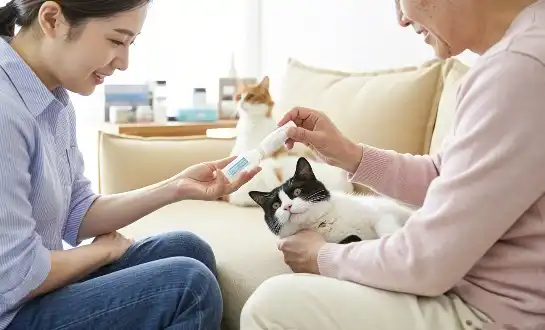
Does My Cat Need a Special Diet During GS-441524 Treatment?
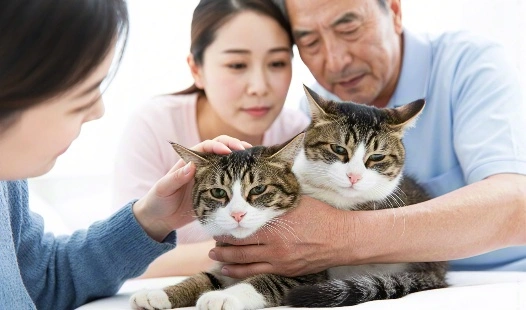
Why Is My Cat's Condition Fluctuating During GS-441524 Treatment?
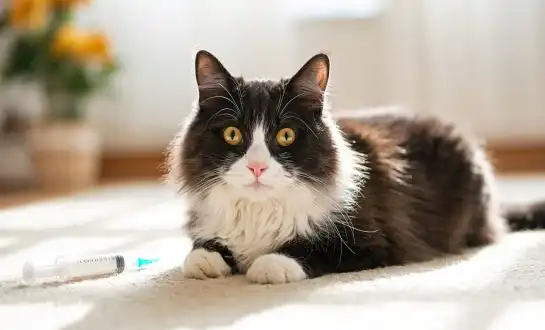
How to Handle Painful GS-441524 Injections: 5 Tips to Ease Your Cat's Stress
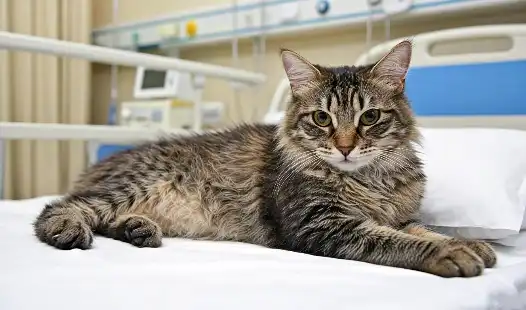
From Despair to Hope: A Cat Owner's GS-441524 Treatment Journey













